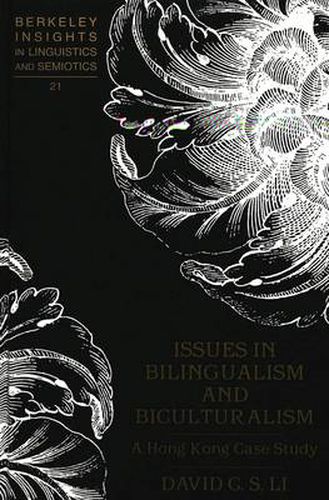Readings Newsletter
Become a Readings Member to make your shopping experience even easier.
Sign in or sign up for free!
You’re not far away from qualifying for FREE standard shipping within Australia
You’ve qualified for FREE standard shipping within Australia
The cart is loading…






Issues in Bilingualism and Biculturalism describes the nature and extent of code-mixing in Hong Kong in the 1990s. It is mainly based on written data obtained from the local Chinese press collected systematically over a period of two years since late 1992. While previous studies on code-mixing between Cantonese and English in Hong Kong tend to emphasize sociolinguistic motivations, this book presents evidence that much of the code-mixing behaviour, be it in print or in speech, may be traced back to linguistic motivations at work resulting from sustained contact between Cantonese, modern standard Chinese and increasingly, English. This study further argues that, largely as a correlate of biculturalism, code-mixing - which is indicative of linguistic convergence in the mind of the average Hong Kong bilingual - is simply unstoppable, given that the norms prescribed for the written standard varieties of Chinese and English deviate considerably from those of the vernacular Cantonese.
$9.00 standard shipping within Australia
FREE standard shipping within Australia for orders over $100.00
Express & International shipping calculated at checkout
Issues in Bilingualism and Biculturalism describes the nature and extent of code-mixing in Hong Kong in the 1990s. It is mainly based on written data obtained from the local Chinese press collected systematically over a period of two years since late 1992. While previous studies on code-mixing between Cantonese and English in Hong Kong tend to emphasize sociolinguistic motivations, this book presents evidence that much of the code-mixing behaviour, be it in print or in speech, may be traced back to linguistic motivations at work resulting from sustained contact between Cantonese, modern standard Chinese and increasingly, English. This study further argues that, largely as a correlate of biculturalism, code-mixing - which is indicative of linguistic convergence in the mind of the average Hong Kong bilingual - is simply unstoppable, given that the norms prescribed for the written standard varieties of Chinese and English deviate considerably from those of the vernacular Cantonese.